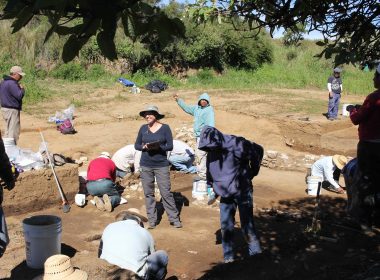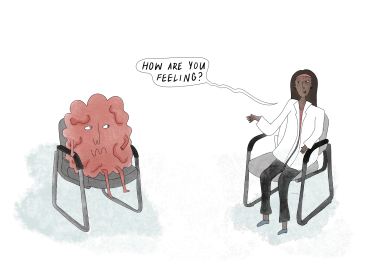For centuries, women have fought to have their scientific contributions recognized, and the challenge to secure tenure-track positions in academia is no different. Despite women representing two-thirds of all Canadian doctorates in archaeology today, they only comprise one-third of the country’s tenured faculty. Lisa Overholtzer, an assistant professor of archaeology[Read More…]
Research Briefs
Determining the criteria for postmortem organ donation
In the past, a person’s death was determined by the absence of breathing and a heartbeat. However, the introduction of the mechanical ventilator has complicated death determination. In patients with severe damage to the brain, breathing stops, which causes the heart to stop beating. Through life support, doctors can now[Read More…]
Puffy exoplanet challenges traditional notions of planet formation
Since the first exoplanet was discovered in 1992, scientists have identified more than 4,000 of these astronomical bodies. Exoplanets—planets found outside our solar system—have been shown to challenge traditional theories of planet formation, which were based on Earth’s own system. A recent study has revealed that gas giants can form[Read More…]
Disappearing giants: How warming oceans are suffocating large fish
Since 1981, the mean global ocean temperature has risen at an average rate of 0.18 degrees Celsius per decade. This has had serious impacts on the health of marine species; as oceans warm across the world, fish that are unable to cope with climatic changes, such as cardinalfish, are disappearing[Read More…]
When the world of dinosaurs was rocked, so was the climate
As tropical forests are cleared for agriculture and coral reefs overheat from rising temperatures, thousands of species vanish into oblivion, unable to survive the rapid climatic and environmental changes of the Anthropocene—the age of the sixth mass extinction. The Anthropocene epoch is an unofficial unit of geological time used to[Read More…]
With tumours, it’s what’s on the inside that counts
For the first time, McGill researchers have detected regions of high rigidity within the developing tumour microenvironment (TME) of breast cancer tumours. These findings, published in Nature Communications, suggest new possibilities for mapping the progression of invasive tumours based on the physical properties of the TME, including tissue stiffness. The[Read More…]
New study highlights differences in vaccination policies worldwide
Vaccination is arguably the most successful public health tool ever developed, virtually eliminating diseases like smallpox and polio from the viral landscape. The current COVID-19 public health crisis has pushed vaccine research efforts into overdrive, as scientists race to find multiple different formulas to grant the world immunity. However, the[Read More…]
Exploring the linguistic mosaics of Montreal bilingual speakers
Montreal is a one-of-a-kind city for several reasons: It has a vibrant nightlife, an incredibly rich history, and an amalgamation of diverse cultures. Yet, nothing in Montreal is as iconic as the role of language in shaping the city’s unique culture. As most Montrealers speak both French and English, casual[Read More…]
Revealing the burning truth about droughts and heatwaves
Throughout the 1930s, horrific dust storms swept through Western North American, eviscerating agricultural fields and leaving the livelihoods of millions of underprepared farmers in peril. This period, known as the Dust Bowl, was characterized by severe drought and wind erosion. Since then, scientific advances have helped farmers develop more resilient[Read More…]
How the brain and body synchronize to keep a beat
People often say that practice makes perfect, and music is no exception. From virtuosos to amateurs, rehearsal is a key part of mastering the craft. A recent study led by Caroline Palmer, a professor in McGill’s Department of Psychology, questioned if practice truly does make perfect, or if underlying genetic[Read More…]















